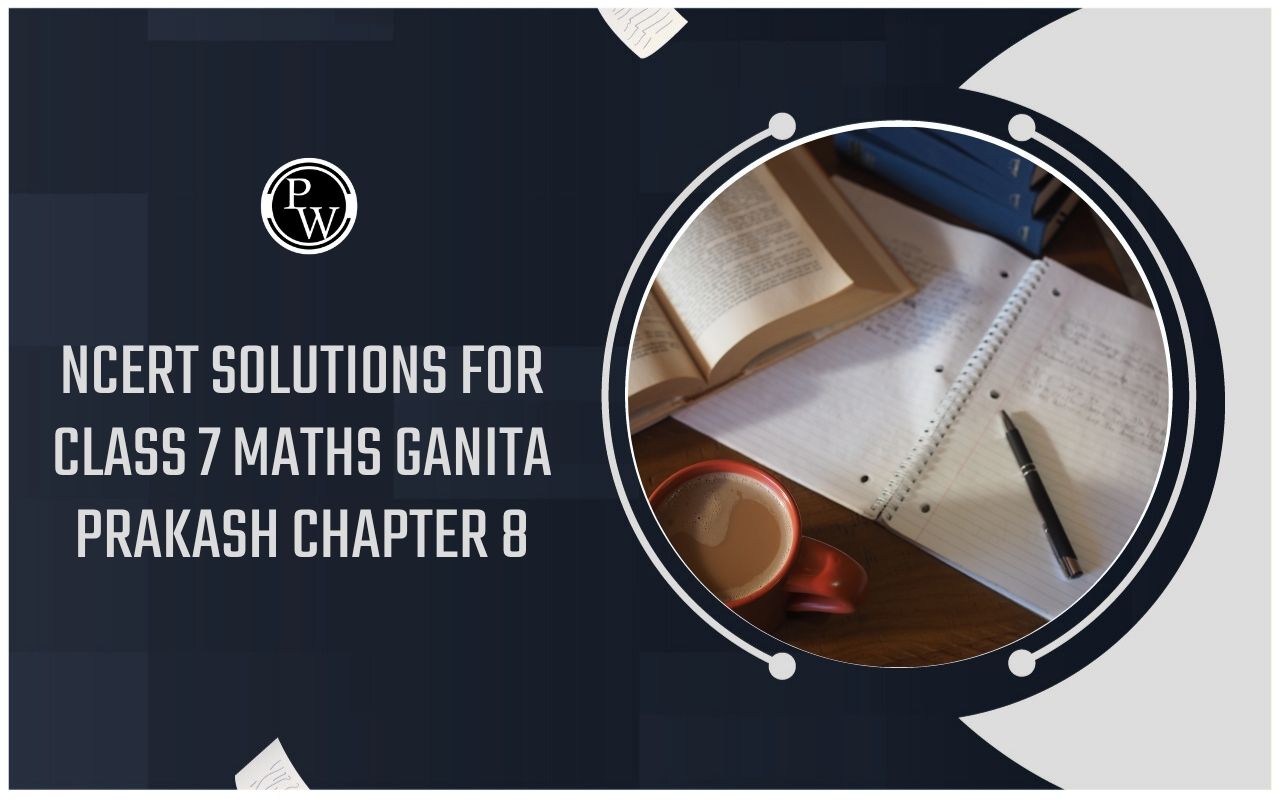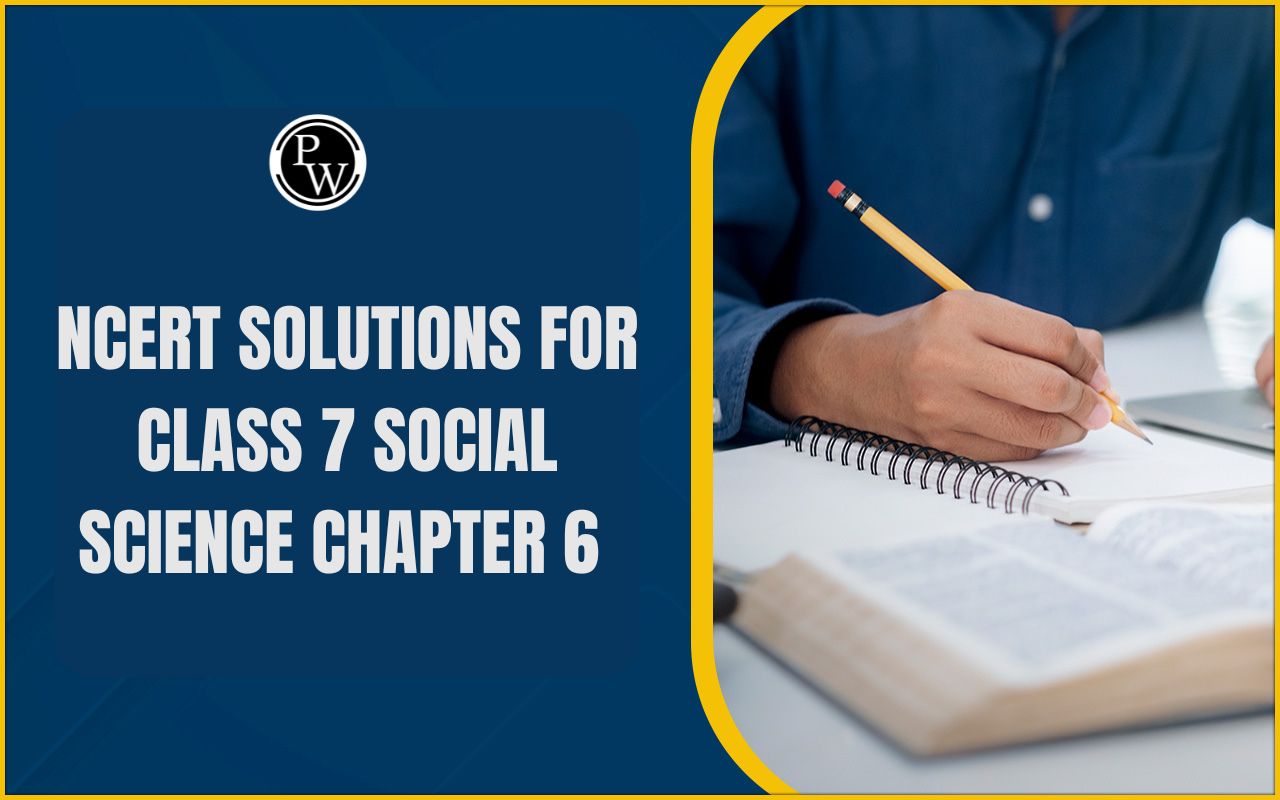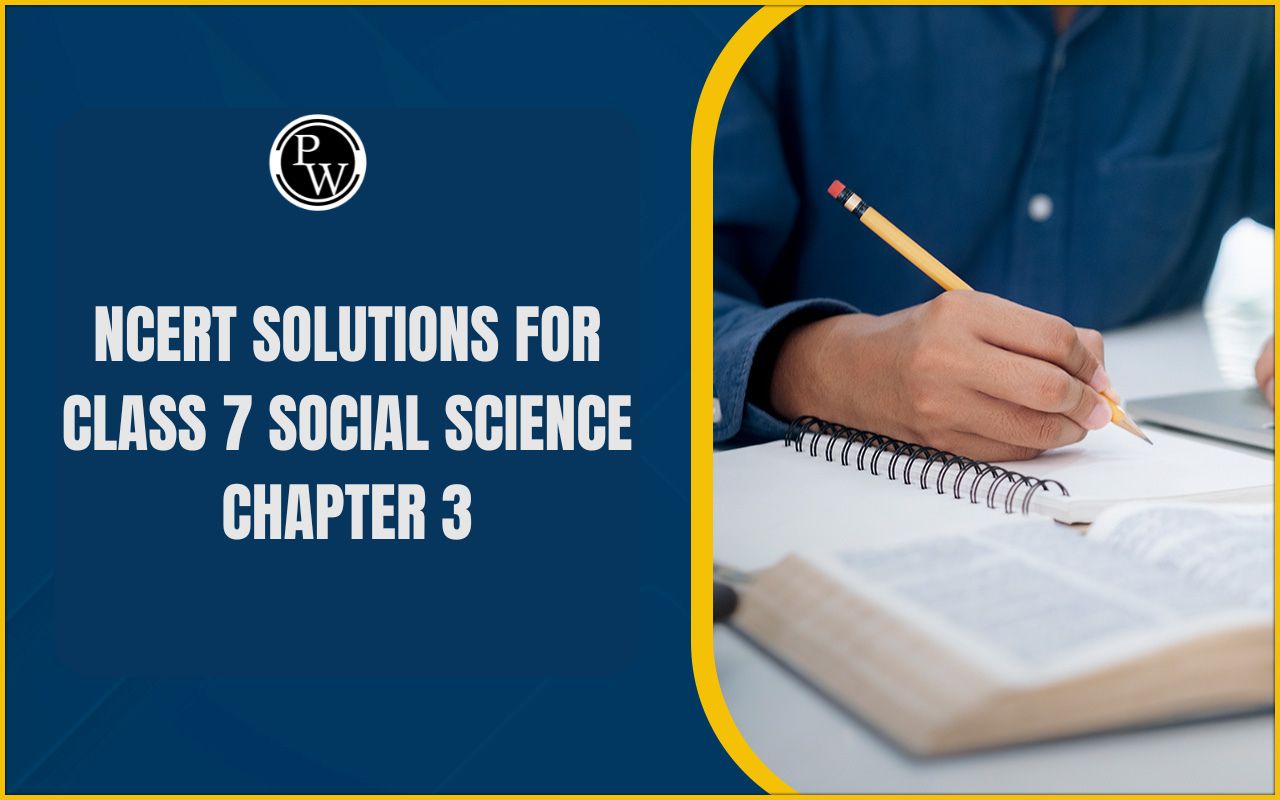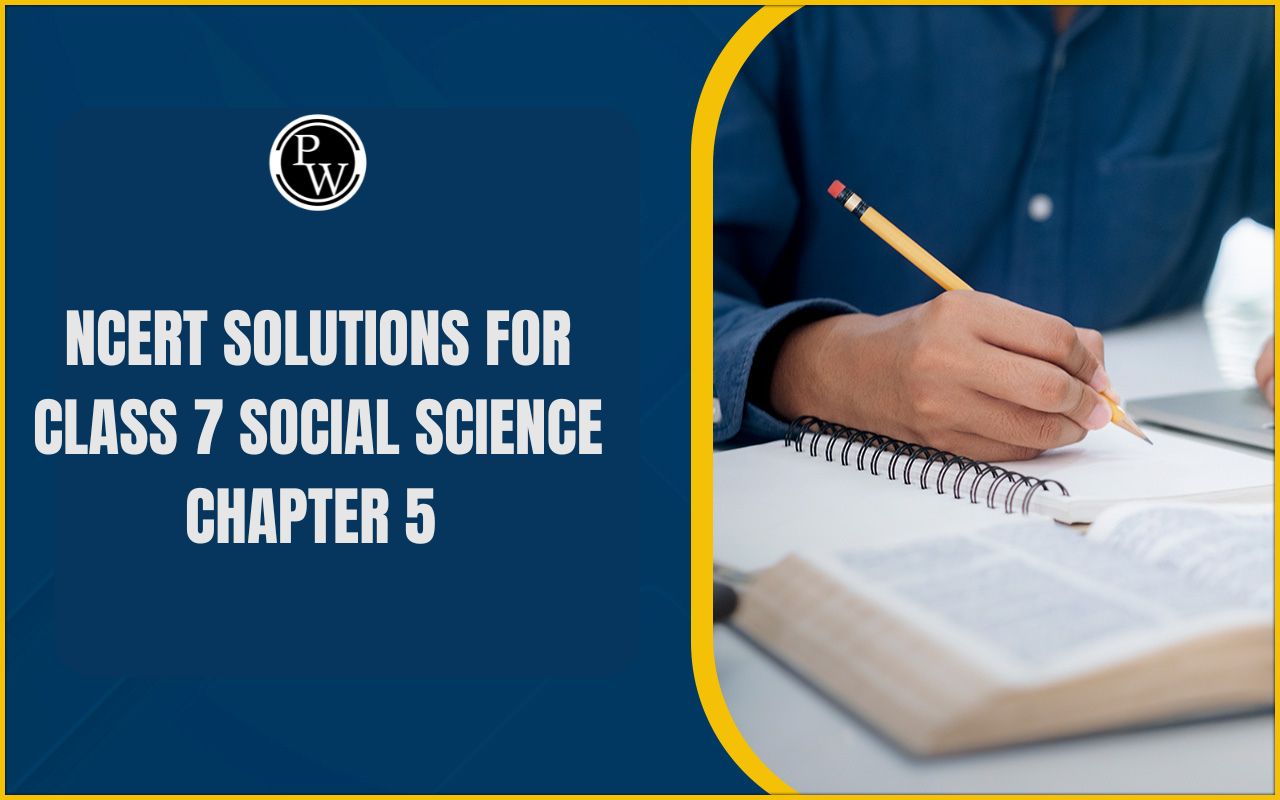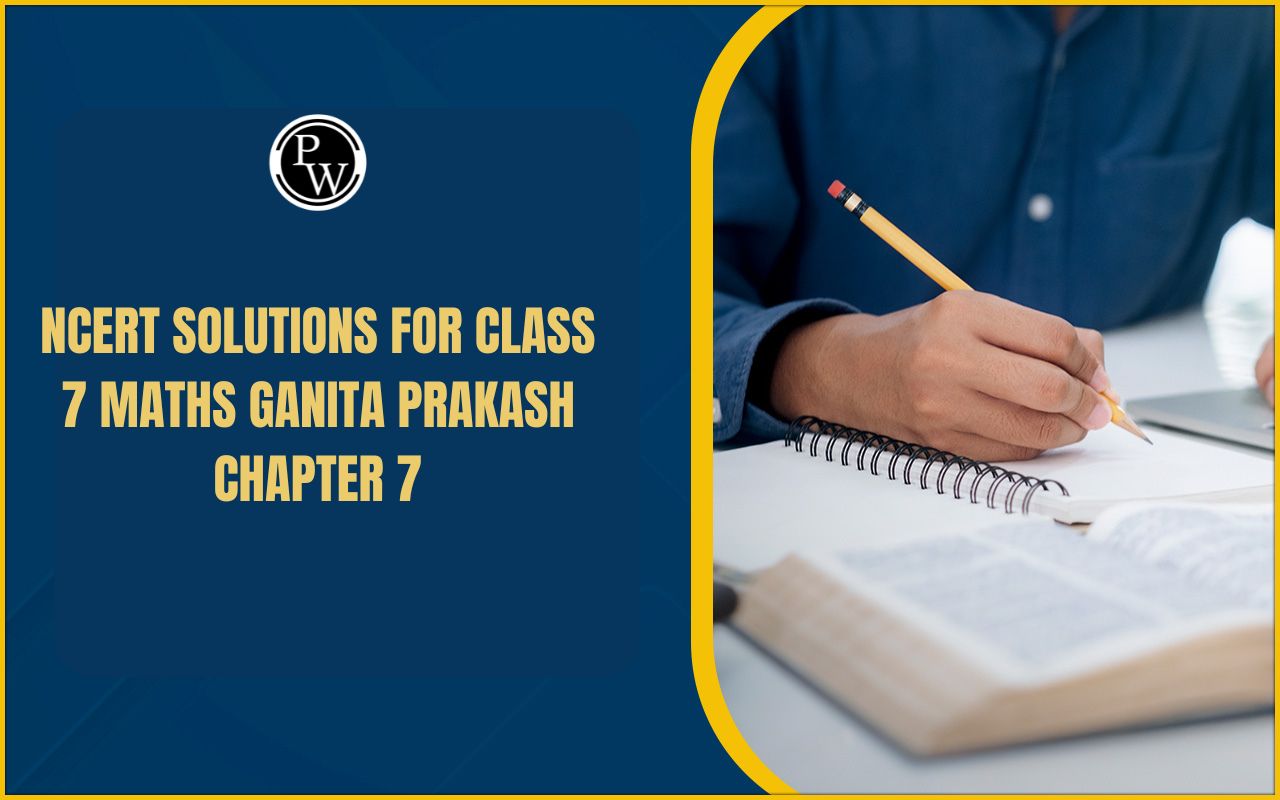
NCERT Solutions for Class 7 Social Science Civics Chapter 5
NCERT Solutions for Class 7 Social Science Civics Chapter 5: Free PDF downloads of NCERT Solutions for Class 7 Civics Chapter 5, "Women Change the World," are accessible on Physics Wallah. The answers are conveniently available on the same page for quick reference. From historical figures who fought for women's rights to contemporary leaders who are breaking barriers, women have been instrumental in bringing about positive change. And in this blog post, we will explore the NCERT solutions for Class 7 Social Science Civics Chapter 5 - Women Change The World.NCERT Solutions for Class 7 Social Science Civics Chapter 5 Overview
Explore the comprehensive NCERT Solutions for Class 7 Social Science Chapter 5, "Women Change The World," presented here with clear and step-by-step explanations. These solutions have gained immense popularity among Class 7 students, serving as a valuable resource for effectively completing homework assignments and preparing for exams. Every question and answer from Chapter 5 of the NCERT Book for Class 7 Social Science is made available here for free. Experience an ad-free learning environment while benefitting from the precision and accuracy of the NCERT Solutions , meticulously crafted by experts.| CBSE Syllabus Class 7 | |
| CBSE Class 7 English Syllabus | CBSE Class 7 Math Syllabus |
| CBSE Class 7 Social Science Syllabus | CBSE Class 7 Science Syllabus |
NCERT Solutions for Class 7 Social Science Civics Chapter 5 Women Change The World
The chapter "Women Change The World" focuses on the pivotal role that women play in shaping societies and economies.1) A Change in Laws:
This section examines the legal changes that have taken place to address gender-based discrimination. It discusses laws and policies aimed at ensuring the rights and empowerment of women. Understanding the legal framework becomes crucial in appreciating the progress made and the areas where further reforms are required.2) Political Changes:
The chapter sheds light on the political participation of women. It discusses the evolving role of women in decision-making processes and governance. The chapter recognizes the importance of women's voices in shaping policies and laws that impact the entire society.3) Let's Meet Some Women:
This part of the chapter introduces notable women who have made significant contributions to society. It showcases women from different walks of life who have excelled in their respective fields. This section serves as an inspiration for students and emphasizes the potential of women to bring about positive changes.4) Women's Work:
The chapter begins by highlighting the diverse roles women play in society, not only as homemakers but also as contributors to the workforce. It emphasizes the unpaid labor of women in households and the significance of recognizing their economic contributions. The discussion extends to the need for acknowledging and valuing both paid and unpaid work done by women.5) Working for a Change:
Here, the chapter delves into the challenges faced by women in various professions. It explores the struggles for equal opportunities and rights, focusing on the barriers that women encounter in workplaces. The chapter underscores the importance of collective efforts to bring about positive changes in society.6) Let's Do an Activity:
The chapter encourages active learning through activities. Students engage in exercises that help them understand the challenges faced by women in different professions. These activities foster a deeper comprehension of the struggles and triumphs of women in diverse occupations.7) Let's Discuss:
The final section of the chapter promotes discussions on the changing roles of women and the need for gender equality. It encourages students to express their views, share insights, and understand the importance of collective efforts in building an inclusive society. In summary, "Women Change The World" not only educates students about the historical and contemporary contributions of women but also instills a sense of responsibility towards promoting gender equality and recognizing the potential of every individual, irrespective of gender.CBSE Board Exam Centre List 2024
NCERT Solutions for Class 7 Social Science Civics Chapter 5 Important Questions
1) Why is unpaid domestic work considered significant in understanding women's contributions to the economy? Answer: Unpaid domestic work, including household chores and caregiving responsibilities, is essential for the smooth functioning of a family and society. Recognizing this work is crucial as it highlights the economic contribution of women, even though it is unpaid. 2) Discuss the challenges faced by women in the workforce. How have these challenges evolved over time? Answer: Women face various challenges in the workforce, including gender discrimination, unequal pay, and limited opportunities for career growth. These challenges have evolved, with efforts being made to address gender disparities through legal reforms and awareness programs. 3) Explain the significance of legal changes in empowering women. Provide examples of key laws aimed at promoting gender equality. Answer: Legal changes play a vital role in empowering women by ensuring their rights and protection against discrimination. Examples include the Equal Remuneration Act, Maternity Benefit Act, and the Sexual Harassment of Women at Workplace (Prevention, Prohibition, and Redressal) Act. 4) How has the political participation of women evolved over the years? Discuss the importance of women's representation in politics. Answer: The political participation of women has increased, with more women engaging in decision-making roles. Women's representation in politics is crucial for ensuring diverse perspectives, addressing women-specific issues, and promoting inclusive governance. 5) Explore the lives and achievements of women introduced in the chapter. How have these women contributed to their respective fields? Answer: The chapter highlights women like Anju Bobby George, Bachendri Pal, and Medha Patkar, showcasing their exceptional contributions in sports, mountaineering, and social activism. Their achievements serve as inspiration for others and contribute to breaking gender stereotypes. 6) Why is it important for students to engage in activities that promote understanding of gender issues? Answer: Activities promoting understanding of gender issues help students develop empathy, critical thinking, and a sense of responsibility. It encourages them to challenge stereotypes and contribute to creating an inclusive and gender-sensitive society. 7) Discuss the significance of discussions on changing roles and gender equality. How can students contribute to fostering gender equality in their communities? Answer: Discussions on changing roles and gender equality are essential for raising awareness and fostering inclusivity. Students can contribute by promoting gender sensitivity, challenging stereotypes, and participating in initiatives that promote equal opportunities for all. These questions encourage students to critically analyze the content, understand the historical context, and reflect on the importance of gender equality in contemporary society.NCERT Solutions for Class 7 Social Science Civics Chapter 5 Long and Short Ques with Ans
Long Answer Questions:
1) Explain the role of education in bringing about social change, particularly in the context of women's empowerment. Answer: Education plays a pivotal role in social change, especially concerning women's empowerment. It acts as a catalyst for challenging traditional norms, fostering awareness, and promoting equality. By providing women with education, they become more aware of their rights, gain the skills needed to access employment opportunities, and contribute to breaking gender stereotypes. 2) Discuss the significance of the women's movement in advocating for gender equality. Answer: The women's movement has been instrumental in advocating for gender equality. It emerged to address the systematic discrimination and inequality faced by women. Through protests, campaigns, and legal reforms, the movement has contributed to changes in societal attitudes and policies. It empowers women to challenge stereotypes, demand equal rights, and actively participate in social and political spheres.Short Answer Questions:
1) Why is unpaid domestic work considered an essential contribution to society? Answer: Unpaid domestic work, often performed by women, includes tasks such as caregiving, household chores, and nurturing family members. While not monetarily compensated, this work is crucial for the well-being of individuals and the functioning of society. It provides emotional support, maintains households, and allows other family members to engage in economic activities. 2) How can education act as a tool for challenging stereotypes? Answer: Education exposes individuals to diverse perspectives, critical thinking, and knowledge. By providing both men and women with education, stereotypes ingrained in society can be challenged. Education encourages questioning traditional norms, promotes gender sensitivity, and empowers individuals to pursue careers and roles beyond predefined gender expectations. 3) Explain the concept of 'Learning for Change' as discussed in the chapter. Answer: 'Learning for Change' emphasizes education not only as a means of acquiring knowledge but as a tool for social transformation. It encourages individuals, especially women, to learn and question societal norms, fostering a mindset that promotes equality. This concept suggests that education should instill a sense of social responsibility and contribute to positive changes in society. 4) What is the significance of the women's movement in challenging rigid expectations placed on women?
Answer:
The women's movement challenges rigid expectations placed on women by advocating for their rights and equality. It contests societal norms that limit women's roles to traditional stereotypes. By addressing issues like unequal pay, limited opportunities, and gender-based violence, the movement plays a crucial role in dismantling rigid expectations and fostering a more inclusive and equitable society.
4) What is the significance of the women's movement in challenging rigid expectations placed on women?
Answer:
The women's movement challenges rigid expectations placed on women by advocating for their rights and equality. It contests societal norms that limit women's roles to traditional stereotypes. By addressing issues like unequal pay, limited opportunities, and gender-based violence, the movement plays a crucial role in dismantling rigid expectations and fostering a more inclusive and equitable society.
NCERT Solutions for Class 7 Social Science Civics Chapter 5 Exercise Questions
Multiple Choice Questions (MCQs):
1) What is the primary focus of the women's movement?- Economic dominance
- Gender equality
- Political supremacy
- By reinforcing stereotypes
- By limiting awareness
- By challenging traditional norms
- By challenging traditional norms
(a) Campaigning: Campaigns are instrumental in fighting discrimination and violence against women. Notable examples include campaigns leading to the passage of laws protecting women from domestic violence and sexual harassment in the workplace.
(b) Protesting: Public protests draw attention to injustices, creating awareness. To combat stereotypes, I would choose the method of organizing public protests. Raising awareness alone can debunk stereotypes, as convincing people of the hindrance negative stereotypes pose to societal progress is essential.
(c) Boycott: Boycotting establishments perpetuating discrimination can effectively combat stereotypes. For instance, boycotting products with discriminatory advertisements sends a strong message against reinforcing negative stereotypes. The rejection of such products fosters a societal stance against harmful stereotypes and promotes a more inclusive environment.NCERT Solutions for Class 7 Social Science Civics Chapter 5 PDF
We have covered the NCERT Solutions for Class 7 Social Science Civics Chapter 5, which is about women and children's rights. We have discussed important concepts and topics such as child rights, women's representation in government, and the role of NGOs in promoting gender equality. By studying these solutions, students will be able to gain a better understanding of the importance of human rights and learn about the various ways in which they can make a positive impact in society. We also want to take this opportunity to mention that Physics Wallah notes and solutions are considered to be one of the best resources for exam preparation.NCERT Solutions for Class 7 Social Science Civics Chapter 5 PDF
NCERT Solutions for Class 7 Social Science Civics Chapter 5 Summary
Chapter 5 of NCERT Class 7 Social and Political Life – II, titled "Women Change The World," explores various dimensions related to women's roles, opportunities, education, and the women's movement. The chapter addresses the challenges faced by women and the transformative potential of education and awareness. 1) Who does the work? The chapter begins by questioning societal norms that assign specific roles to men and women. It emphasizes the unpaid domestic work that women often engage in, contributing significantly to the family and society's well-being. 2) Fewer opportunities and rigid expectations This section delves into the challenges faced by women due to limited opportunities and societal expectations. It highlights the disparities in employment, wages, and the impact of rigid gender roles on women's lives. 3) Learning for change The importance of education as a tool for empowerment is discussed. Education is portrayed as a means to challenge stereotypes, break societal norms, and pave the way for positive change in the lives of women. 4) Schooling and education today The chapter examines the state of schooling and education, focusing on the changing dynamics and the need for inclusive and gender-sensitive education. It explores how education can contribute to altering traditional gender roles. 5) Women’s movement The women's movement is a central theme, showcasing the collective efforts of women to challenge discrimination and advocate for their rights. It introduces prominent figures and highlights the historical struggle for gender equality. 6) Campaigning The chapter concludes by discussing the importance of campaigns and initiatives in promoting gender equality. It encourages students to engage in activities that challenge stereotypes and contribute to fostering an environment of equal opportunities. Summary: In essence, Chapter 5 underscores the transformative power of education and awareness in challenging gender norms and empowering women. It portrays the struggles faced by women due to societal expectations and unequal opportunities. The chapter also celebrates the resilience of the women's movement and encourages students to actively participate in campaigns that promote gender equality. Through a comprehensive exploration of these themes, students gain insights into the complexities of gender roles, the significance of education, and the ongoing efforts to bring about positive change in society. The chapter serves as a catalyst for fostering a sense of responsibility and advocating for a more inclusive and equitable world.NCERT Solutions for Class 7 Social Science Civics Chapter 5 FAQs
Why is learning the alphabet considered important for women like Rashundari Devi, Ramabai, and Rokeya?
Learning the alphabet was crucial for these women as it empowered them to express their struggles against societal inequalities. It enabled them to write letters, stories, and autobiographies, providing a medium to document and share their experiences.
How did poor girls dropping out of school challenge the stereotype that they are uninterested in education?
The assertion that poor girls drop out due to disinterest is inaccurate. Poverty, lack of infrastructure, and societal priorities contribute to their discontinuation. This challenges the stereotype, highlighting systemic issues rather than the girls' lack of interest.
Can public protests effectively combat stereotypes about women's capabilities?
Yes, public protests can be potent in combating stereotypes. Raising awareness through protests draws attention to injustices and challenges prevailing stereotypes, fostering a more inclusive and equitable societal perspective.
What role do campaigns play in the women's movement?
Campaigns are integral to the women's movement as they fight against discrimination and violence. Notable campaigns have led to the enactment of laws protecting women from domestic violence and sexual harassment in the workplace.
How can boycotting be a strategy to combat stereotypes?
Boycotting establishments perpetuating discrimination or endorsing harmful stereotypes can be an effective strategy. For instance, boycotting products with discriminatory advertisements sends a strong message against reinforcing negative stereotypes and promotes inclusivity.
🔥 Trending Blogs
Talk to a counsellorHave doubts? Our support team will be happy to assist you!

Check out these Related Articles
Free Learning Resources
PW Books
Notes (Class 10-12)
PW Study Materials
Notes (Class 6-9)
Ncert Solutions
Govt Exams
Class 6th to 12th Online Courses
Govt Job Exams Courses
UPSC Coaching
Defence Exam Coaching
Gate Exam Coaching
Other Exams
Know about Physics Wallah
Physics Wallah is an Indian edtech platform that provides accessible & comprehensive learning experiences to students from Class 6th to postgraduate level. We also provide extensive NCERT solutions, sample paper, NEET, JEE Mains, BITSAT previous year papers & more such resources to students. Physics Wallah also caters to over 3.5 million registered students and over 78 lakh+ Youtube subscribers with 4.8 rating on its app.
We Stand Out because
We provide students with intensive courses with India’s qualified & experienced faculties & mentors. PW strives to make the learning experience comprehensive and accessible for students of all sections of society. We believe in empowering every single student who couldn't dream of a good career in engineering and medical field earlier.
Our Key Focus Areas
Physics Wallah's main focus is to make the learning experience as economical as possible for all students. With our affordable courses like Lakshya, Udaan and Arjuna and many others, we have been able to provide a platform for lakhs of aspirants. From providing Chemistry, Maths, Physics formula to giving e-books of eminent authors like RD Sharma, RS Aggarwal and Lakhmir Singh, PW focuses on every single student's need for preparation.
What Makes Us Different
Physics Wallah strives to develop a comprehensive pedagogical structure for students, where they get a state-of-the-art learning experience with study material and resources. Apart from catering students preparing for JEE Mains and NEET, PW also provides study material for each state board like Uttar Pradesh, Bihar, and others
Copyright © 2026 Physicswallah Limited All rights reserved.
